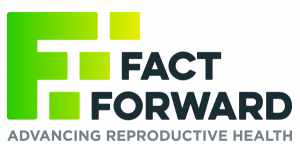Training
"They Want Me to Teach What?!" Stepping into the Sex Educator Role
This full-day training is for educators who are newly tapped to teach sex education to teach them the necessary foundational skills. We will cover group rights, setting the classroom tone, managing potential challenges, establishing appropriate boundaries, and exploring personal values as they relate to teaching about sexuality. Participants will leave this training with an increase in knowledge, skills, and comfort to successfully teach sex ed. Registration link here.
Online
Age Group(s) - Grades 6-8, Grades 9-10, Grades 11-12
Topic(s) - Creating an inclusive and affirming learning environment, Disclosure, Effective teaching strategies, Responding to challenging questions, Sex education in schools, Values
State(s) - Alabama, Alaska, Arizona, Arkansas, California, Colorado, Connecticut, Delaware, Florida, Georgia, Hawaii, Idaho, Illinois, Indiana, Iowa, Kansas, Kentucky, Louisiana, Maine, Maryland, Massachusetts, Michigan, Minnesota, Mississippi, Missouri, Montana, Nebraska, Nevada, New Hampshire, New Jersey, New Mexico, New York, North Carolina, North Dakota, Ohio, Oklahoma, Oregon, Pennsylvania, Rhode Island, South Carolina, South Dakota, Tennessee, Texas, Utah, Vermont, Virginia, Washington, West Virginia, Wisconsin, Wyoming
Professional Learning Standards for Sex Education (PLSSE) Indicators
Creating and inclusive and affirming learning environment Indicators - Indicator 1 (K-12): Demonstrate three techniques to create an inclusive and affirming learning environment. (S)
- Indicator 2 (K-12): Demonstrate three strategies for creating culturally responsive classrooms. (S)
- Indicator 3 (K-12): Describe three elements of a trauma-informed approach to sex education.
- Indicator 4 (K-12): Demonstrate three strategies of a trauma-informed approach to sex education (e.g. giving trigger warnings before content on sexual assault and allowing students the right to pass as appropriate, etc.). (S)
Disclosure Indicators - Indicator 1 (K-12): Describe the importance of teachers’ maintaining professional boundaries when teaching sex education.
- Indicator 2 (K-12): List three factors to consider regarding personal disclosure when teaching sex education
- Indicator 3 (K-12): Demonstrate how to reduce the impact of educators’ passive and/or active personal disclosure on the educational environment. (S)
- Indicator 4 (K-12): Explain the roles and responsibilities of a mandated reporter.
Effective Teaching Strategies Indicators - Indicator 1 (K-12): Demonstrate the ability to build rapport with students. (S)
- Indicator 2 (K-12): Demonstrate three student-centered instructional approaches that support a variety of learning styles. (S)
- Indicator 3 (K-12): Explain the differences between positive vs. shaming approaches to teaching sex education.
- Indicator 5 (K-12): Describe three effective strategies for practicing skills with students.
Responding to Challenging Questions Indicators - Indicator 1 (K-12): Explain three reasons why it is important to respond to every question students ask when teaching sex education.
- Indicator 2 (K-12): Demonstrate the ability to effectively respond to three different types of challenging questions. (S)
Sex Education In Schools Indicators - Indicator 1 (K-12): Describe three health (e.g. physical, social and/or emotional) and/or academic benefits of sex education for young people
- Indicator 2 (K-12): Describe state and/or district laws, policies, and standards that relate to sex education where one teaches.
Values Indicators - Indicator 1 (K-12): Explain the differences between personal and universal values relating to sexuality.
- Indicator 2 (K-12): Describe how verbal and nonverbal expression of personal values, and comfort with topics related to sex education, could impact one’s teaching
- Indicator 3 (K-12): Explain the importance of educators refraining from sharing their personal values when implementing sex education.
- Indicator 4 (K-12): Demonstrate the ability to respond effectively to students’ values-based comments and questions. (S)




